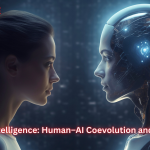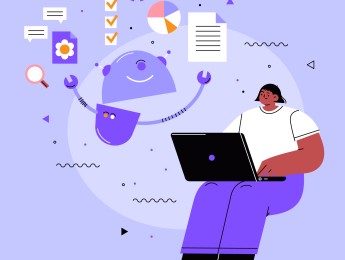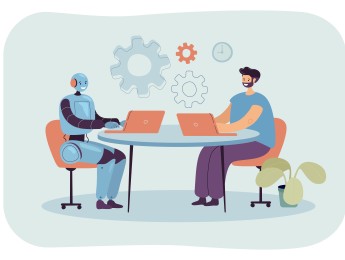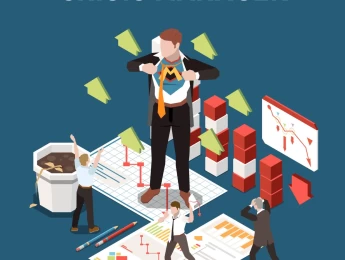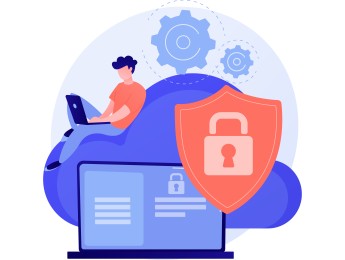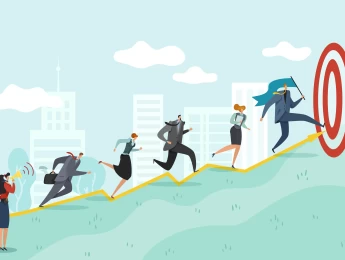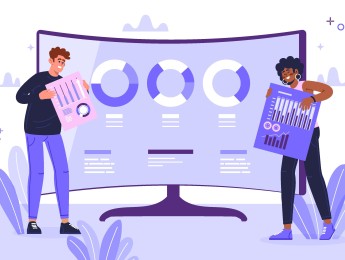As artificial intelligence becomes increasingly embedded in how we work, learn, and solve problems, the ability to think adaptively is emerging as a vital skill for success. In the age of human-AI synergy, it's not just about learning new tools—it’s about shifting how we approach challenges, make decisions, and respond to change. Adaptive thinking enables individuals to remain flexible, curious, and effective in environments where both technology and expectations evolve constantly.
This course equips participants with the mindset and methods needed to develop adaptive thinking skills and collaborate productively with intelligent systems. It explores how to interpret complexity, reframe problems, and blend human insight with AI-supported data to make smarter, faster decisions. Participants will leave with a practical framework for navigating uncertainty and embracing innovation with confidence and creativity.
By the end of this course, participants will be able to:
- Understand the concept of adaptive thinking in AI-driven environments.
- Develop strategies for problem-solving under uncertainty and complexity.
- Reframe challenges through a systems-thinking and iterative lens.
- Strengthen personal resilience, agility, and openness to change.
- Collaborate with AI tools to enhance decision-making and creativity.
- Apply adaptive thinking across personal, organizational, and technological contexts.
- Design learning pathways that support long-term adaptability.
This course is ideal for:
- Professionals and managers navigating fast-changing industries.
- Educators, coaches, and learning designers building future-ready programs.
- Data and AI practitioners seeking to enhance human-centered decision-making.
- Innovators, entrepreneurs, and startup teams.
- Students and researchers in interdisciplinary or high-tech fields.
- HR and leadership development professionals.
- Public sector professionals managing digital transformation.
This course uses a blended learning methodology that combines experiential workshops, AI-powered tool demonstrations, reflective exercises, and group-based simulations. Participants will engage in real-world scenario mapping, reframe problems using adaptive models, and collaborate on AI-enhanced decision-making tasks. Emphasis is placed on critical reflection, feedback, and continuous learning.
Day 5 of each course is reserved for a Q&A session, which may occur off-site. For 10-day courses, this also applies to day 10
Section 1: The Foundations of Adaptive Thinking
- What is adaptive thinking? Key traits and mindset components.
- Why adaptability matters in human-AI collaboration.
- Fixed vs. adaptive mindset in the digital age.
- The science of adaptability: neuroplasticity and cognitive flexibility.
- Characteristics of adaptive individuals, teams, and cultures.
- Self-assessment: measuring your adaptive thinking capacity.
Section 2: Navigating Complexity and Ambiguity
- Understanding VUCA: volatility, uncertainty, complexity, ambiguity.
- Problem-framing and reframing in dynamic environments.
- Systems thinking and holistic analysis.
- Scenario planning and anticipating change.
- Shifting from reactive to proactive thinking.
- Case study: Adaptive leadership in times of disruption.
Section 3: Human-AI Synergy in Decision-Making
- Leveraging AI for data-driven insight and analysis.
- When to trust AI—and when to rely on human judgment.
- Human-in-the-loop strategies in decision frameworks.
- Enhancing creativity and strategic foresight with AI tools.
- Avoiding automation bias and dependency traps.
- Practical exercise: Human-AI problem-solving collaboration.
Section 4: Building Adaptive Behaviors and Habits
- Cultivating curiosity, experimentation, and continuous feedback.
- Managing stress, uncertainty, and change fatigue.
- Cross-functional collaboration and cognitive diversity.
- Micro-adaptability: adjusting in real time.
- Resilience as a learnable skill.
- Tools and routines that support adaptability in daily workflows.
Section 5: Designing Adaptive Learning and Growth Strategies
- Building a personal development roadmap for adaptability.
- Lifelong learning models for the hybrid intelligence era.
- Creating learning ecosystems that foster innovation.
- Learning from failure: reflection and iteration.
- Community learning, mentoring, and knowledge exchange.
- Final action planning: applying adaptive thinking in your organization.
Upon successful completion of this training course, delegates will be awarded a Holistique Training Certificate of Completion. For those who attend and complete the online training course, a Holistique Training e-Certificate will be provided.
Holistique Training Certificates are accredited by the British Accreditation Council (BAC) and The CPD Certification Service (CPD), and are certified under ISO 9001, ISO 21001, and ISO 29993 standards.
CPD credits for this course are granted by our Certificates and will be reflected on the Holistique Training Certificate of Completion. In accordance with the standards of The CPD Certification Service, one CPD credit is awarded per hour of course attendance. A maximum of 50 CPD credits can be claimed for any single course we currently offer.
- Course Code PI2-113
- Course Format Classroom, Online,
- Duration 5 days


